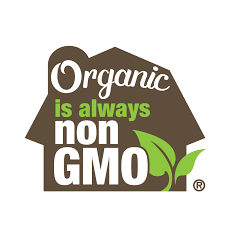Would You Pay More for Milk that has a Redundant Label?
AAEA members release new research in AEPP
The dairy industry is especially sensitive to consumer demands and in recent years several processors, in particular yogurt makers, have aimed to increase non-GMO dairy product availability and sales, despite a well-established organic dairy industry. This could create multiple instances in which a redundant labeling strategy may be essential to reducing consumer confusion and holding on to a contentious market share for organic producers and processors. This will be especially compounded as the dairy industry looks to reverse the long-term trend in beverage milk consumption.
 In the new article “Information and Consumer Demand for Milk Attributes: Are Redundant Labels an Effective Marketing Strategy?” released in the Applied Economic Perspectives & Policy, Danielle Ufer and David Ortega from Michigan State University, and Christopher Wolf from Cornell University find out the true value of redundant statements on your milk carton.
In the new article “Information and Consumer Demand for Milk Attributes: Are Redundant Labels an Effective Marketing Strategy?” released in the Applied Economic Perspectives & Policy, Danielle Ufer and David Ortega from Michigan State University, and Christopher Wolf from Cornell University find out the true value of redundant statements on your milk carton.
Ufer says, “We found that redundant labels are indeed valuable to consumers-- the value that they derived was significantly above that of the ‘comprehensive’ organic label on its own. We also found that informing consumers of the redundancy didn’t diminish that value for the redundant label, it persisted even amongst educated consumers.”
And to answer their titular question, Ortega adds that “redundant labels can be an effective marketing strategy, recapturing market share lost to products which only offer a subset of the traits of the organic label. But our results still indicate that informational campaigns and educating consumers continues to be a worthwhile endeavor.”
If you are interested in setting up an interview, please contact Allison Ware in the AAEA Business Office.
ABOUT AAEA: Established in 1910, the Agricultural & Applied Economics Association (AAEA) is the leading professional association for agricultural and applied economists, with 2,500 members in more than 60 countries. Members of the AAEA work in academic or government institutions as well as in industry and not-for-profit organizations, and engage in a variety of research, teaching, and outreach activities in the areas of agriculture, the environment, food, health, and international development. The AAEA publishes two journals, the American Journal of Agricultural Economics and Applied Economic Perspectives & Policy, as well as the online magazine Choices and the online open access publication series Applied Economics Teaching Resources. To learn more, visit www.aaea.org.
Contact: Allison Ware
Senior Communications Manager
(414) 918-3190
Email: aware@aaea.org









